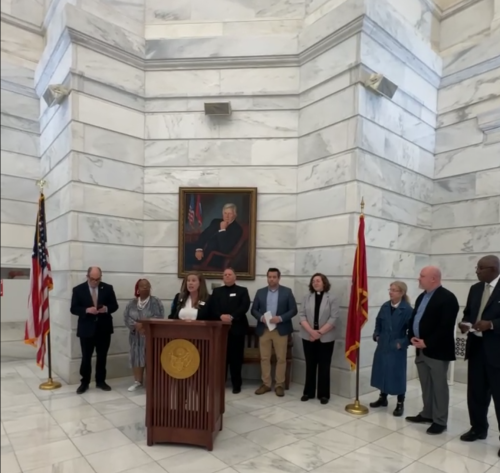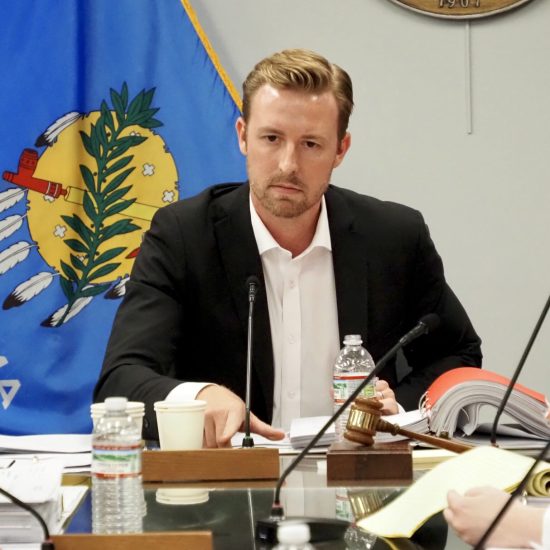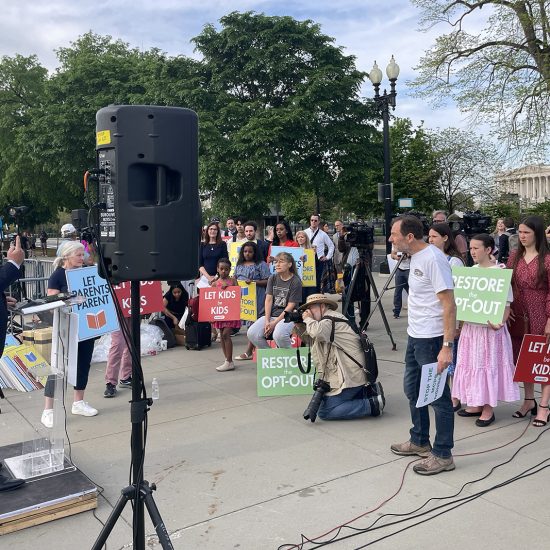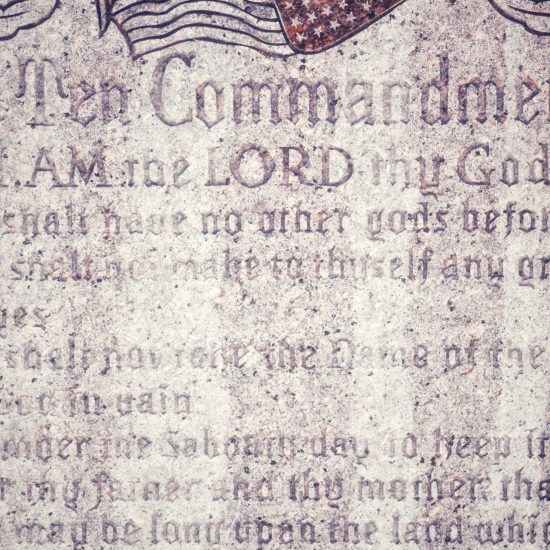
Legislation requiring the Ten Commandments to be displayed by public schools has recently cropped up in more than 20 states. And this week, Arkansas became the latest flashpoint in church-state politics as SB 433 — which had already passed in the Senate after being filed less than a month ago — advanced out of a House committee on Wednesday (April 2). The bill now only needs a majority vote from the full Republican-dominated House to be sent to the desk of Gov. Sarah Huckabee Sanders.
However, a group of clergy from the Natural State made sure their vigorous opposition to the mandate was heard on Thursday (April 3) during a rally in the Arkansas Capitol rotunda.

A view of the Arkansas State Capitol in Little Rock (HAL333)
“I am gravely concerned that we’ve taken these commandments out of context and reduced sacred scripture to a trivial moral code posted without the proper context and instruction they deserve,” said Brittany Stillwell, associate pastor at Second Baptist Church in Little Rock and organizer of the press conference. “We are here today because we value these commandments. And because we value our religious liberty.”
Wendell Griffen, a pastor and former judge on the Arkansas Court of Appeals, added that the legal tradition in the U.S. has already demonstrated that this kind of Ten Commandments display represents an unconstitutional violation of the First Amendment’s Establishment Clause. He joked that “it’s only been around since 1791” and added “it reads rather clearly: ‘Congress shall make no law respecting an establishment of religion.’”
“That’s not because our Founders had anything against religion or against government. They recognized that they each had their separate roles. The role of government is not to mandate faith. The role of government is not to dictate faith. The role of government is not to license faith,” Griffen preached.
“America is suffering a terrible morality crisis,” said Rabbi Barry Block of Congregation B’nai Israel. “The oppression of people who are different from the majority is the height of a moral problem. The imposition of one set of values that emanate from White Christian Nationalism is a terrible moral crisis.”
This gathering comes in the wake of a public letter signed by 42 Arkansas faith leaders calling on the Arkansas General Assembly to vote against SB 433, which is sponsored by State Sen. Jim Dotson and State Rep. Alyssa Brown with the support of pseudo-historian David Barton of the Texas-based organization WallBuilders. The opposition letter was delivered to lawmakers on Monday (March 31), organized by the Cooperative Baptist Fellowship, the Baptist Joint Committee for Religious Liberty, and Interfaith Alliance. It mirrors similar efforts to combat Ten Commandments bills in Missouri and Texas.
“SB 433 forces the government to take sides in important religious debates,” the letter states. “The legislation requires the use of a specific translation of the Ten Commandments — down to individual word choices — that is not remotely universal or inclusive of all faith traditions, even among those of us who incorporate or hold sacred the Ten Commandments.”
This refers to the fact that the Arkansas legislation is a copy of a Louisiana law (currently in legal limbo while it faces court challenges) that uses a heavily edited version of the Ten Commandments derived from promotional material for Cecil DeMille’s 1956 film “The Ten Commandments” starring Charlton Heston. So not only does SB 433 threaten religious freedom and pose theological issues for the Jews, Catholics, Protestants, and Orthodox Christians who use different ordering and translations, but this particular version actually does not exist in any religious tradition.
“When the state writes a CliffsNotes version of a religious text and mandates its use, we all lose,” said Rev. Jennifer Hawks, Director of Advocacy at the Cooperative Baptist Fellowship, earlier this week. “The state should not waste time trying to usurp our families and religious institutions. Leave religious instruction to us and don’t turn public schools into Sunday Schools.”
Amanda Tyler, Executive Director of the Baptist Joint Committee for Religious Liberty, made the case that “Faith isn’t something the government can force on kids in a classroom. And in America, we don’t need the government playing preacher. Arkansas lawmakers need to do the right thing and leave faith where it belongs: with the people.”
“As a Christian, I understand the Ten Commandments as holy and worthy of contemplation and I take them very seriously,” added Stillwell. “They do not, however, belong in schools and other public spaces as a kitschy symbol of a shallow faith.”

Screengrab from livestream as Brittany Stillwell speaks inside the Arkansas Capitol in Little Rock on April 3, 2025.






